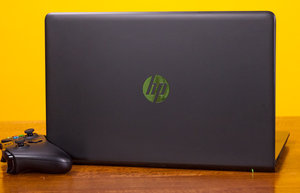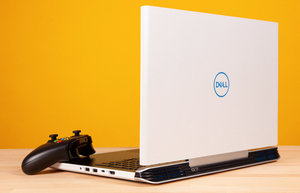Dell, HP Address Tariff Impacts in Earnings Calls


Dell and HP, two American computer manufacturers, had quarterly earnings calls last night (Nov. 29) in which the companies discussed the effects of tariffs on computer parts coming from China.
Dell didn't address the tariffs in prepared statements, but was asked about them in the Q&A portion of the call. In a response to a question from analyst David Eller of Wells Fargo, Dell vice chairman or products and operations, Jeff Clarke, acknowledged some "headwinds," but suggested they haven't been a huge issue thus far.
"Clearly, we didn't call out tariffs," Clarke said. "There is certainly uncertainty with the tariff picture, but we've successfully, with our supply chain, the optionality that we have, have navigated the current list for tariffs quite successfully." He pointed out that "most" of Dell's desktops are built in North America, which the company claims helped the company navigate the issue.
Clarke admitted that "where we have incurred in higher costs with tariffs, we have passed that through to end users," though he suggested that Dell has seen no issue with demand despite those higher costs.
On HP's Q4 call, HP chief financial officer Steve Fieler said that personal systems helped grow the company's operating profit ("up $37 million versus last year"), thanks to higher volume, but that it was "partially offset by higher commodities and logistics costs and the initial impact of tariffs in the U.S."
That is, HP did well, but it could have done even better. Fieler also said that "plans to mitigate previously announced and implemented China U.S tariffs are on track," and that it expects the issues to be bigger earlier in 2019 and then slow down.
In a Q&A session, Fieler told analyst Toni Sacconaghi of Bernstein that the tariffs had an affect on personal systems, business machines and desktops, though it didn't consider that a huge impact to the business.
Get Tom's Hardware's best news and in-depth reviews, straight to your inbox.
HP president and CEO Dison Weisler then stated that the company is keeping an eye on pricing, which could include raising them.
"We are looking at our competitors' pricing very carefully. We tend not to lead the market down on price and sometimes in many cases [we're] the first to take up pricing."
Neither company had comment about potential future tariff issues that haven't been announced, but both seem ready to, if they have to, raise prices and pass the costs on. However, both Dell and HP claim to have supply chain management in place that, if the companies are right, may prevent this from being a huge issue for consumers.

Andrew E. Freedman is a senior editor at Tom's Hardware focusing on laptops, desktops and gaming. He also keeps up with the latest news. A lover of all things gaming and tech, his previous work has shown up in Tom's Guide, Laptop Mag, Kotaku, PCMag and Complex, among others. Follow him on Threads @FreedmanAE and BlueSky @andrewfreedman.net. You can send him tips on Signal: andrewfreedman.01